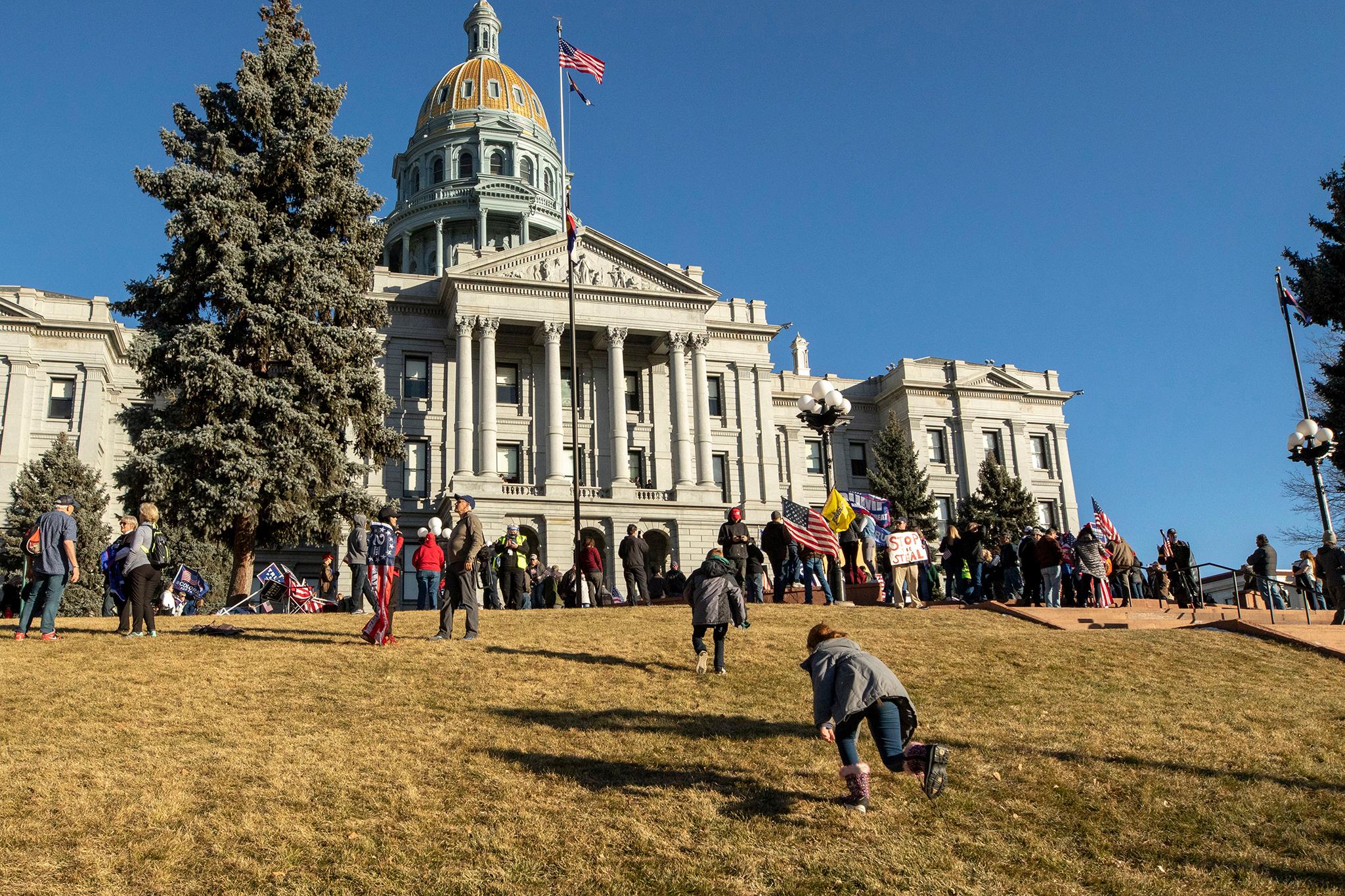Over the past 10 years, the population of Colorado has grown enough to get another seat in the U.S. House of Representatives. (Sorry, not sorry California, Illinois, Ohio, Michigan, New York , Pennsylvania and West Virginia, which will all be losing a seat.) The U.S. Census Bureau made the announcement Monday.
It's been 20 years since the state got its seventh seat, but the political fight over how the congressional map will look is hashed out every decade and -- more often than not -- ends up in court.
Voters decided in 2018 to try and take the politics and partisanship out of these political maps, establishing the Colorado Independent Congressional Redistricitng Commission. It'll spend the better part of the year getting feedback from the public and creating and debating maps that will help determine your congressional representation.
What does an eight congressional seat really mean for Colorado?
It gives Colorado a bigger voice. Rep. Diana DeGette put it like this: "The more votes we have in the House of Representatives, the more we can do for Colorado." A lot of federal funding is decided based on population. Money for schools, hospitals, roads and other vital programs come from this information, and this eighth seat is another voice advocating for how those dollars will be spent.
When it comes to presidential politics, Colorado may not be the swing state it once was, but the state gets another electoral college vote, taking us from 9 to 10.
OK, now will you tell us what it means for the Front Range?
The short answer is we don't know yet.
Most of the population growth happened along the Front Range, so this is where the new congressional seat will likely be formed. But where it's going to be is the political question of the year, and will also likely be the big political fight, too.
"I think it'll be in the metro area," said GOP strategist Tyler Sandberg. "But will it be north metro or south metro? I'm not sure."
He thinks the more interesting question is how it will "inevitably reshape every other seat."
So who decides where this district will go?
That burden will fall on the 12 members of the Colorado Independent Congressional Redistricting Commission. This is the first time an independent commission will try creating the map. The last few times the General Assembly tried, and it did not turn out well. Ultimately, the courts decided.
The commission will try and draw districts that:
- Have equal population
- Are contiguous geographic areas
- Comply with the Voting Rights Act of 1965 and make sure minority voices aren't minimized
- Preserve "communities of interest" and whole political subdivisions. In other words try and keep counties, cities and towns whole.
- Are compact districts, when possible, and
- Maximize the number of politically competitive districts.
It's a lot to ask for. And some of it will be hard to define, like "community of interest," which is a very vague term. Part of that is geographical, but it could also be looked at in terms of culture, ethnicity, economics, trade areas, etc.
The commission is starting this endeavor without all the data it needs, since the Census Bureau is running behind this year.
But Sandberg noted that the commission is supposed to start with a blank slate. In other words, it doesn't necessarily have to use the current congressional map as a guide or even a starting point.
"There will be some tectonic shifts from the new lines is virtually guaranteed," he said. "There's no path to small changes. It will inevitably lead to major shake ups in multiple districts."
So does this mean Denver might get split up and get another seat?
Again, unclear. But DeGette, Denver's current representative, pointed out that two past court rulings -- a federal ruling from the 1980s and one from the state supreme court in 2000 -- found Denver has to be kept together as "a community of interest."
"We did the math," DeGette said.
Her district will have to get smaller, but the city and county of Denver "itself is not big enough to sustain a congressional district. So, it will have to be Denver plus something else."
If and when Denver has too many people for one congressional district, that's when splitting up the city, DeGette said, may become a possibility.
Who will be involved in the fight for where the district goes?
Expect the Democratic and Republican parties -- national and local -- to weigh in. But they won't be the only ones. Local groups will also get involved. For example, rural groups are already banding together to argue that their communities be kept together. Pueblo has made it quite clear that it doesn't want to be part of the 3rd congressional district. Other groups will weigh in over the next few months, and probably more importantly, after the draft maps are released.
You can also have a say, if you choose. The commission is taking public comments about what you'd consider "your communities of interest."
We've corrected an error in this story that originally misreported when the federal ruling DeGette referenced took place. It was from the 1980s, not 1990s.













